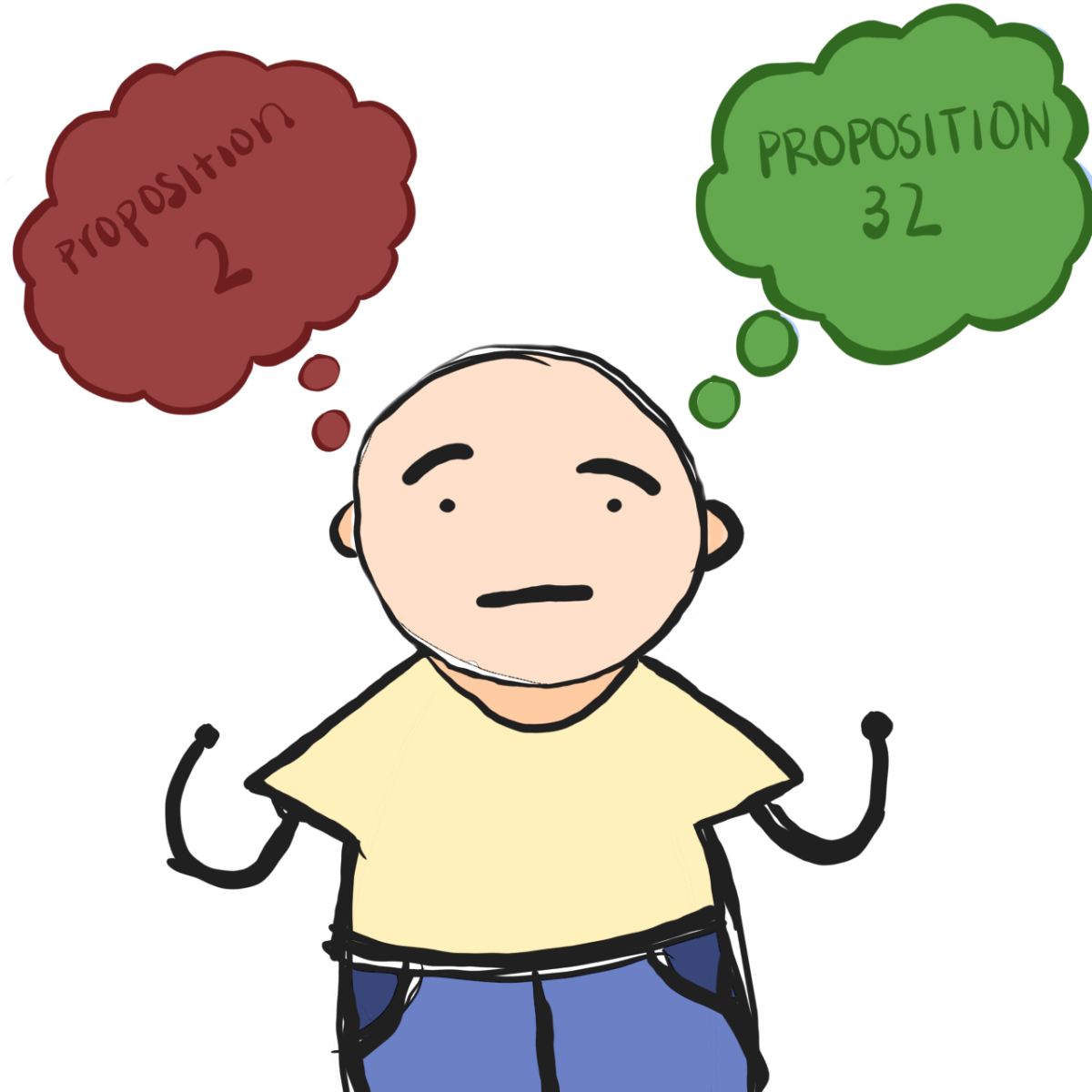Every election year, it is important for eligible student-voters to be informed beyond just the presidential candidates, and understand the direct impact of the state propositions they vote for. To many students, Proposition 2—the authorization of school bonds— and Proposition 32—increasing minimum wage—will heavily shape their future.
Proposition 2 authorizes the government to borrow $10 billion in state bonds for the repair, upgrade and construction of facilities at K-12 and charter public schools, community colleges and career technical education programs (CTE), according to VoterGuide. The state would split this bond to allocate $8.5 billion towards public K-12 and charter schools and $1.5 billion towards community colleges. For public school facilities, the bonds would then be split into for other sub-categories: renovating existing buildings, constructing new buildings, building facilities for CTE programs and charter schools.
However, if politicians borrow this money, Californians would be forced to pay it back with interest through general tax revenue. This would leave Californians in about $18 billion of tax debt, and Gov. Gavin Newsom has stated that California is already spending more money than its revenue, which has put the state into an estimated $38 billion deficit, according to CalMatters. If Proposition 2 is passed, it would only add to California’s already substantial debt, which would be passed down to future generations to drown in. Instead of dedicating money towards improving school infrastructure, California should instead use it towards achieving a higher standard of education, and Proposition 2 does nothing to contribute to that cause.
If Proposition 2 passes, California’s debt burden could increase significantly. In contrast, Proposition 32 focuses on raising the minimum wage for workers across the state.
For employers with 26 or more employees, Proposition 32 would immediately raise the minimum wage from $16 to $17 and $18 on Jan. 1, 2025. For employers with 25 or fewer employees, the minimum wage would be raised to $17 on Jan. 1, 2025 and $18 on Jan. 1, 2026, according to VoterGuide. If implemented, Proposition 32 would bring millions of workers closer to affording the state’s cost of living.
Some people believe that by implementing Proposition 32, California’s cost of living will only continue to increase. However, everyone should be able to afford life’s basic needs and yet many Californians still work full time for less than $18 an hour, preventing them from being able to support themselves and their families. According to the MIT Living Wage Calculator, a single adult living in California would need to earn at least $27.32 an hour to cover their basic living needs—a significantly larger amount than the current minimum wage. Although raising the bar to $18 an hour still would not meet the minimum living wage amount, it is a step towards improving the standard of living for millions of California’s workers.
As eligible student voters head to the polls for election day, it is important for them to stay informed on each proposition’s contents in order to vote for the ones they believe in.





